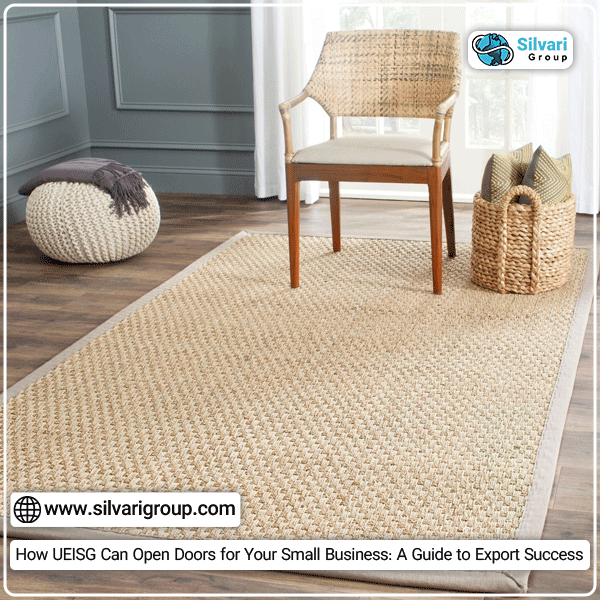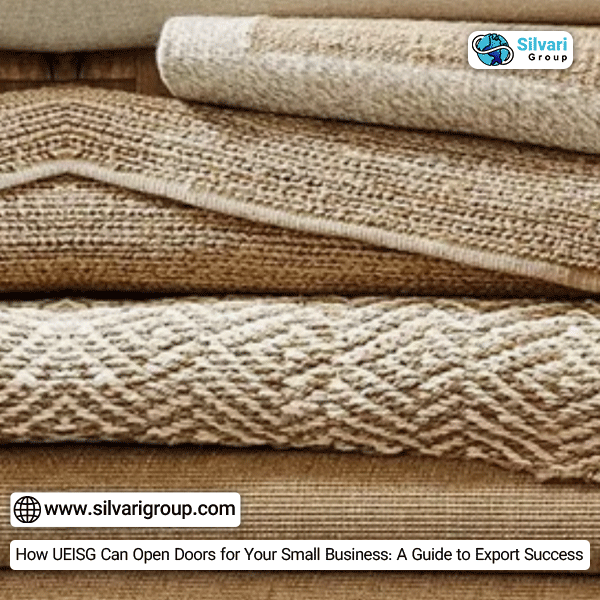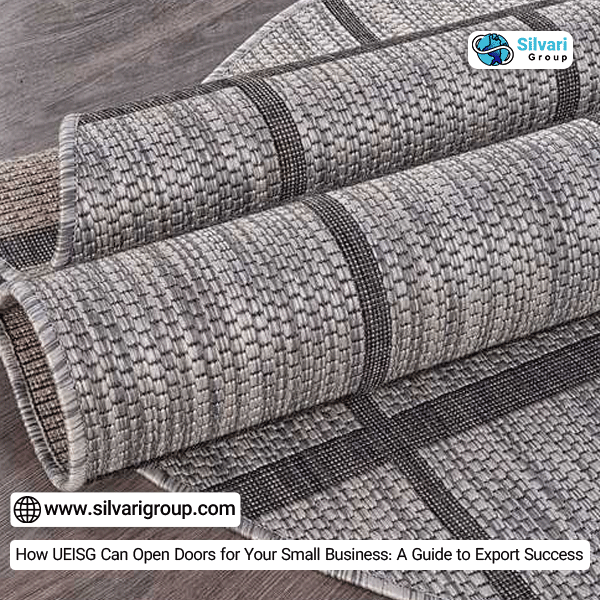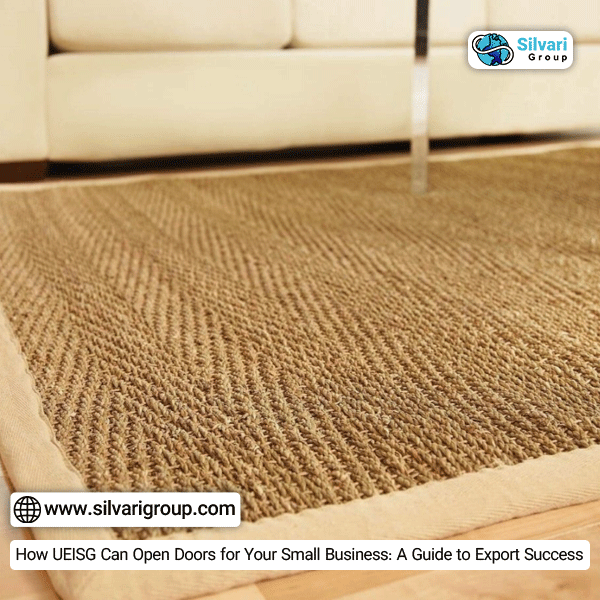What is carpet jute? If you’re exploring the world of eco-friendly flooring options, you’ve likely come across this sustainable material. Jute, a robust plant fiber, brings both beauty and functionality to modern rugs and carpets. The versatility of jute yarn in machine-made carpets offers a perfect blend of durability and style. But how does jute compare to sisal, another popular natural fiber? And what advantages might you discover when purchasing jute carpets? Beyond showcasing their charm, it’s also important to understand the pricing of jute yarn in today’s market. Dive deeper into the benefits of jute carpets and explore the offerings at silvarigroup to elevate your interior design with an environmentally conscious choice.
Click to use Silverigroup personal shopper services
What is jute carpet (hemp plant)?
Carpet jute, derived from the jute plant, is a natural fiber known for its strength, durability, and eco-friendliness. Jute is often referred to as “the golden fiber” due to its beautiful golden-brown color and silky sheen. It is commonly used in the production of carpets and rugs, providing a sustainable alternative to synthetic fibers.
Jute carpets are highly regarded for their breathability and moisture-wicking properties, making them an excellent choice for various indoor spaces. They are versatile and can complement a wide range of interior design styles, from rustic to modern. Additionally, jute is biodegradable and environmentally friendly, contributing to a lower carbon footprint compared to synthetic materials.
Overall, carpet jute offers a perfect combination of aesthetics, practicality, and sustainability, making it a popular choice for homeowners and designers alike.
Click to buy citric acid from Silvairgroup

Application of jute thread in machine carpet
Jute yarn is increasingly being utilized in machine-made carpets due to its distinctive qualities and benefits. The natural strength and durability of jute make it an ideal material for crafting carpets that can withstand daily wear and tear. Its texture adds depth and character, enhancing the overall aesthetic appeal of the carpet.
One of the primary applications of jute yarn in machine-made carpets is in creating intricately woven designs and patterns. The fiber’s versatility allows for the production of various styles, from contemporary to traditional. Additionally, jute carpets often feature a soft, warm feel underfoot, providing comfort along with style.
Moreover, jute is an eco-friendly material, which appeals to environmentally conscious consumers. Using jute yarn in machine-made carpets not only supports sustainable practices but also promotes a healthier indoor environment by minimizing the presence of harmful chemicals often found in synthetic fibers.
In summary, jute yarn plays a significant role in the production of machine-made carpets, offering a blend of durability, aesthetic versatility, and sustainability that aligns with modern design trends.
Click to buy antique products from Silverigroup
The difference between jute carpet and sisal
The differences between jute carpets and sisal carpets are significant, as each material brings unique properties and benefits to the table.
1. Material Source:
Jute is derived from the jute plant, while sisal comes from the agave plant. This fundamental difference in origin contributes to their varying textures and appearances.
2. Texture and Feel:
Jute carpets are generally softer and have a more luxurious feel underfoot compared to sisal. Jute fibers have a smoother texture, making them comfortable for areas where you might walk barefoot. In contrast, sisal has a more coarse texture, which can feel rougher against the skin.

3. Durability and Maintenance:
Sisal is known for its durability and resistance to wear, making it a great choice for high-traffic areas. However, it is prone to staining and can be harder to clean compared to jute. Jute, while still strong, is less durable in comparison and can absorb moisture and stains more easily, so it is recommended for low-traffic areas.
lick to buy industrial products from Silverigroup
4. Eco-Friendliness:
Both jute and sisal are natural fibers, making them eco-friendly options. However, jute generally has a lower environmental impact during production, as it requires less water and pesticides compared to sisal.
5. Aesthetic Appeal:
Jute carpets often feature a warm, golden hue with a more relaxed and casual appearance, making them perfect for cozy settings. Sisal carpets, on the other hand, offer a more structured and sophisticated look, suitable for formal spaces.
In summary, the choice between jute and sisal carpets largely depends on the intended application and personal preferences regarding texture, durability, and design aesthetics. Each material offers distinct advantages, making them popular choices in modern interior design.
The advantage of buying jute carpet
Purchasing jute carpets comes with a variety of advantages that make them an attractive choice for many consumers:
1. Eco-Friendly:
Jute is a natural, biodegradable fiber that has a minimal environmental impact. Its cultivation requires less water and fewer pesticides compared to synthetic materials, making jute carpets an environmentally sustainable option for eco-conscious consumers.
2. Durability:
Despite its soft texture, jute is a strong fiber that can withstand daily wear and tear. Jute carpets are resilient and can last for many years with proper care, making them a long-lasting addition to your home.
3. Versatile Designs:
Jute carpets are available in a wide array of styles, colors, and patterns, allowing you to find the perfect match for any decor. Their earthy tones and natural look complement both modern and traditional interiors.

4. Comfort:
Jute carpets provide a soft and comfortable surface underfoot, making them ideal for living areas, bedrooms, and more. Their natural texture adds warmth to any space, enhancing the overall comfort of your home.
5. Breathability:
Jute fibers have natural moisture-wicking properties, which help to regulate humidity levels in your home. This makes jute carpets a good choice for areas prone to moisture.
6. Easy Maintenance:
Caring for jute carpets is relatively easy, as they are less prone to trapping dust and allergens compared to synthetic fibers. Regular vacuuming and occasional spot cleaning can help maintain their appearance and longevity.
7. Cost-Effective:
Jute carpets are often more affordable than many other flooring options, providing a budget-friendly way to enhance your space without compromising on style or quality.
In summary, the benefits of purchasing jute carpets include their eco-friendliness, durability, versatile designs, comfort, breathability, easy maintenance, and cost-effectiveness, making them an excellent choice for any home.
The price of jute yarn
The price of jute yarn can vary significantly based on several factors, including quality, grade, and market demand. Generally, jute yarn is considered an economical choice compared to synthetic fibers and other natural materials.
1. Quality:
Higher-quality jute yarn, which is produced from the finest fibers and undergoes stringent processing, will typically command a higher price. Conversely, lower-quality jute yarn may be more affordable but might not offer the same durability and texture.
2. Market Fluctuations:
Prices can fluctuate due to variations in supply and demand, seasonal production cycles, and changes in global agricultural markets. For instance, a poor harvest due to adverse weather conditions can lead to a rise in prices.

3. Quantity:
Purchasing jute yarn in bulk can often result in lower prices per unit. Wholesalers or manufacturers may offer discounts for larger orders, making it more cost-effective for businesses or projects requiring significant quantities.
4. Regional Differences:
The price of jute yarn can also differ based on geographical location, with areas closer to jute-producing regions (such as India and Bangladesh) often having lower prices than regions farther away.
5. Specifications:
Prices may vary depending on the specific characteristics of the jute yarn, such as thickness, dyeing, and treatment processes. Specialty jute yarns that have been dyed or treated for additional properties may be priced higher.
Typically, prices can range widely, and it is advisable for buyers to compare prices from different suppliers to ensure they secure a fair deal. Overall, jute yarn remains an affordable and sustainable option for those seeking natural fiber materials for various applications.
final word
What is carpet jute? It’s a remarkable natural fiber derived from the jute plant that is gaining popularity in the world of flooring. When it comes to machine-made rugs, jute yarn is celebrated for its eco-friendliness and durability, making it a top choice for both consumers and designers. Unlike sisal, which can often be stiffer and less pliable, jute offers a softer texture and a richer aesthetic, enhancing the warmth of any space.
The advantages of purchasing a jute rug are numerous: they are sustainable, stylish, and affordable. While jute yarn pricing can vary, the overall value you receive transcends the cost, making it a wise investment for your home.
In conclusion, if you’re looking for a stylish yet practical flooring option, consider the charm of carpet jute. For more information on quality jute rugs and to explore our selection, visit silvarigroup. Transform your living space today with the elegance and sustainability that only jute can provide!
